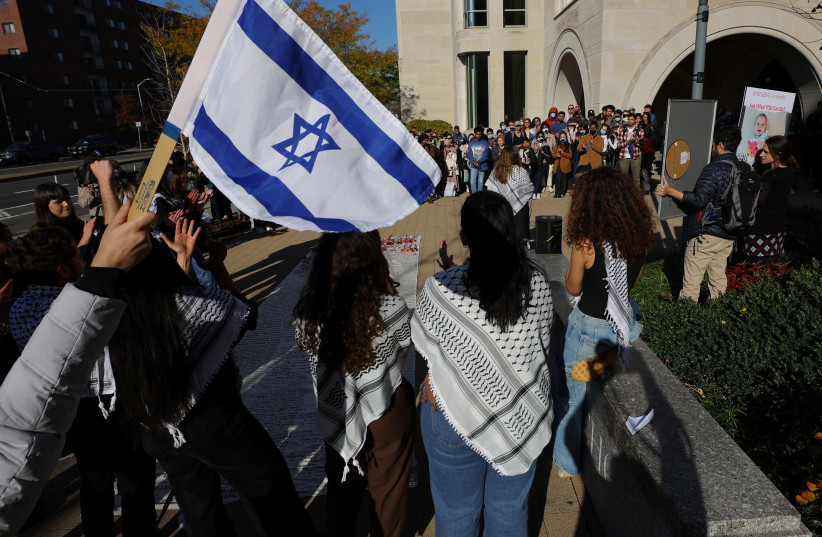In the past 35 years, hundreds of Israeli civil servants, senior military personnel, and leaders from the third sector have participated in the Wexner Foundation scholarship programs at Harvard University Kennedy School of Public Administration, which is one of the best in the world in its field.
Along with academic excellence, the programs have been an introduction to leaders in the making from all over the world and have opened a window to an open and fruitful discourse. This has made a tremendous contribution to the public sector in Israel, to which the graduates of the programs returned at the end of their studies.
At the core of the foundation’s success was its connection to Harvard and the excellence for which it is known, thus making studying there an enriching experience, first and foremost at the academic level but also in light of the fact that it attracts excellent students from all over the world.
On October 7, many felt that everything changed
The inability of the heads of the university to clearly and unambiguously condemn the atrocities of Hamas – and to protect the Jewish and Israeli students on campus from expressions of hatred and calls for the destruction of Israel – brought with them many question marks regarding the partnership between the Wexner Foundation and the university. Consequently, the management of the foundation decided to sever its ties with Harvard.
The moral paralysis that gripped Harvard following the massacre was not unique to this institution. The majority of the leadership of this American academy also failed to rise to the moment of truth; instead, they adopted a sad silence, struck by a fear of lawsuits in the context of freedom of speech and criticism for succumbing to a shallow and oversimplified discourse of “strong vs weak.” At the end of the day, they were afraid to express a morally correct position, even if it was not easy in terms of the public mood on the campuses.

While we, Israelis and many American Jews, understand the difference between the justification of Israel’s existence and legitimate criticism of the conduct of the Israeli government, there are young men and women on American campuses who have difficulty understanding the difference. Some divide the world between the strong and the weak, even if it makes them ignore the horrors of the murder and rape committed by Hamas terrorists on October 7. The expectation from the leaders of the American Academy that they will stand up to the burst and lead and not be led is completely justified, and many of them have indeed failed.
Nevertheless, as a proud graduate of the excellent leadership program of the Wexner Foundation, I believe that abandoning the elite universities of the US will prove to be a mistake that we will regret in the future. First, Israel is in the midst of a battle for its legitimacy in the court of public opinion. This battle must not be abandoned because if it is, we will prepare the ground for more hatred and more support for terrorism.
In years to come, we will ask ourselves why we abandoned the most significant arena in which future leaders from the most important countries in the world are educated and influenced. We will ask ourselves how we managed to prevent Jewish philanthropists from supporting these universities, leaving the way open for our enemies to gain influence and make their mark instead.
Beyond that, we will have given up the enriching experience of studying at the most prestigious university in the world with American and foreign students, which makes an irreplaceable contribution to the State of Israel and its public service.
THE AMERICAN academic arena is not one piece. Those who call for the destruction of the State of Israel are a loud minority. Alongside them are many who, even while they criticize the Israeli government (a criticism that is sometimes right in my view, as well as in the eyes of many Israelis), are interested, like us, in the good of the State of Israel and when we abandon them, they are left alone in the battle.
As someone who is deeply engaged in the American arena in my current role, and as someone who gained a lot of experience on American campuses when I served as Consul General of Israel in Boston, I know that we have many good partners there. It is our duty to strengthen them, not to abandon them.
As Israelis, we must continue to raise our voices everywhere because there is nothing like familiarity and conversation to convince people to alter their opinions. As we become more vocal, we will encourage those who support us to stand alongside us as we fight for our legitimacy. The easy way is to get angry and leave, but this is not the smart way in the long run. For Israel haters, it is easier for them to express their positions when there is no one to challenge them.
I propose a return to America’s elite universities with a determination to influence from within. We have the intellectual capacity to face the challenges and we must not abandon the campaign, even if it is difficult.
The writer is J Street Israel executive director, a graduate of the Wexner Israel Fellowship program, and former chairman of the alumni council of the program.
